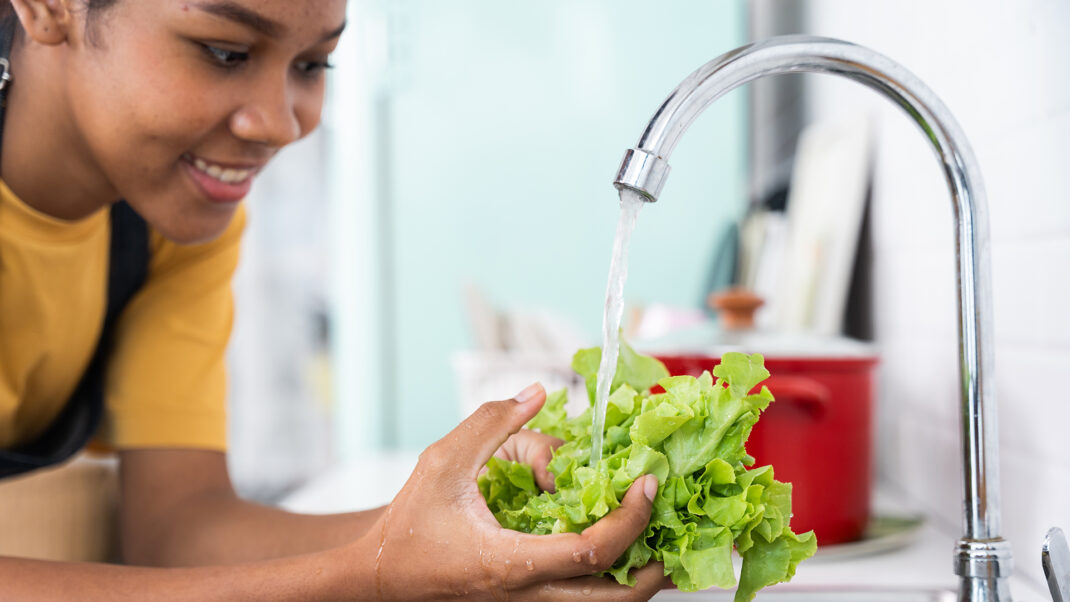Store lettuce in the fridge to avoid E. coli
So why, precisely should you store lettuce in the fridge? To avoid E. coli! Research shows it is more likely to be contaminated.

At warmer temps, lettuce is more likely to be contaminated with E. coli than kale, spinach or collards, research shows.
Salad eaters take note: Lettuce is more vulnerable to E. coli contamination than other leafy greens, researchers at Duke University in Durham N.C. report. The physical composition of green leaf and romaine lettuce makes it a more welcoming home for E. coli bacteria, particularly at room temperature, according to the study published in the journal Food Microbiology. Other leafy greens—spinach, kale and collards—have a rougher texture and waxy coating that make them more resistant to infection from E. coli, a bacteria species whose toxic strains can cause severe stomach cramps, bloody diarrhea and vomiting. Perhaps this is why we are seeing more food poisoning outbreaks linked to lettuce, but not so much on some other leafy greens. Further, kale and collards are usually cooked before eaten, while lettuce is consumed raw. Heating kills or inactivates E. coli. For the study, the investigators infected whole leaves from five different leafy greens—romaine lettuce, green leaf lettuce, spinach, kale, and collards—with E. coli O157:H7. They then observed what happened after storage at 39, 68 and 98.6 degrees Fahrenheit. Overall, susceptibility was determined by a combination of temperature and leaf surface properties. At room temperature or higher, E. coli grows very fast on lettuce. But if lettuce (and other leafy greens as well) is refrigerated at 39 F, there is a sharp decline in the E. coli population. So consumers should promptly stuff their lettuce in the fridge when home from the supermarket or farmers’ market. Rinsing lettuce does help, but doesn’t remove all the bacteria because of their tight attachment to the leaf. Interestingly, the juice produced from cut spinach, kale and collards had antimicrobial properties that protect against E. coli.
Want to learn more? Ask the RD: Why Is Lettuce Linked With E. Coli?
References
https://www.sciencedirect.com/science/article/abs/pii/S0740002023002198
Matthew Kadey, MS, RD
Matthew Kadey, MS, RD, is a James Beard Award–winning food journalist, dietitian and author of the cookbook Rocket Fuel: Power-Packed Food for Sport + Adventure (VeloPress 2016). He has written for dozens of magazines, including Runner’s World, Men’s Health, Shape, Men’s Fitness and Muscle and Fitness.





